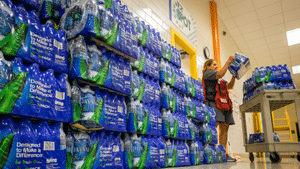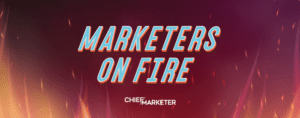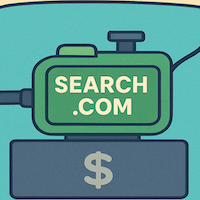First things first. Every little bit helps and every brand should be applauded for giving back to greater good causes.
In the wake of a historically disastrous hurricane season, many brands are looking for ways to help. Many want people to see them doing it. And let’s face it—one of the most needed things following any catastrophe is funding for disaster relief efforts. There is a justifiable and rational argument that the best thing a brand can do is cut a check and support the real heroes who know where help is needed and how to provide. It’s just not the right argument.
Studies show that consumers increasingly want brands to live a cause, to apply their people and best skillset to helping. In short, cutting a check is no longer going to cut it if you really want to give back and showcase your brand’s difference.

According to a recent Nielsen report, 66 percent of consumers worldwide will pay extra for products and services that come from companies committed to positive social and environmental impact. That means not only committing to a cause, but dedicating yourself to actionable change, and making sure your employees live that mission. Brands can no longer just be brands. They must be just brands. And the numbers show that this approach isn’t just good for mankind—it’s good for profits and customer loyalty.
But the reality is, many brands default to the easy way out. They prop causes up under their logo, they ask consumers to give at the register and they match donations. They give, but are they really showing their commitment. Today’s brands win by applying their giving to the number one thing they excel at: the difference-making skillset that only they can contribute to a cause they believe in. For some, it is their employees and for other brands, it is a technical expertise.
Use Your Biggest Differentiator to Make a Difference
What does that mean? Your water-filtration company shouldn’t be donating money or just delivering water—they should be leading the charge to make sure water purification deliveries turn floodwater into H20 for victims. Why do this? Because it rallies your internal team to apply what it does best and gives back in a way only your brand can. It is the living embodiment of your difference. It helps people immediately while helping them understand why you matter more—why they should care about what YOU DO FOR THEM.
Just brands understand that their differentiator can be applied to a cause that matters to the consumer. Here are a few great examples of brands that went above and beyond in recent disaster-relief efforts.
Airbnb More than 200 Airbnb hosts in Florida, Georgia, Alabama and North and South Carolina have listed their homes for free as shelters for those displaced by disaster, as part of the company’s regional disaster response program.
Coca-Cola The beverage giant has donated thousands of bottles of water, canned goods and other supplies in the aftermath of the recent hurricanes, and has pledged to help affected employees with temporary housing, medical bills and relocation costs.
AT&T With power out throughout Puerto Rico following Hurricane Maria, AT&T set up a website that will let anyone stateside register the cell phone number of a family member or friend who is an AT&T wireless customer on the island. When the Puerto Rico-based customer’s cell phone connects to their network in Puerto Rico, the customer will be notified that their family or friends in the U.S. have been trying to contact them.
Bass Pro Shops Bass Pro Shops donated more than 80 boats to government agencies and rescue organizations in Houston and other Texas communities. The outdoor retailer also donated truckloads of relief supplies totaling $40,000 to Convoy of Hope and the American Red Cross.
Lowes Well before Hurricane Harvey or Hurricane Irma made landfall, the home improvement store’s Emergency Command Center began prepping thousands of trucks with supplies, and sent its employees to distribute them in affected locations. It also sent workers to help homeowners cut up trees, clear debris and tarp roofs.
Kroger In addition to supplying rescue organizations and first responders with food and water, Kroger deployed its mobile Kroger Pharmacy to help refill customers’ prescriptions, provide immunizations and perform blood pressure and glucose screenings.
Uber and Lyft The ride-share competitors both stepped in during Hurricane Irma, offering free rides to shelters and publicizing them through local emergency management offices. Uber has also encouraged local governments and nonprofits needing free rides to reach out to a dedicated Irma Relief email address at IrmaRelief@uber.com.
Don’t just be a brand. By becoming a just brand, you’re not only helping the greater good, but creating a sustainable differentiator that makes consumers value you, notice you, and stay loyal.
Geoff Cunningham is creative director at MicroArts Creative Agency.


 Network
Network

